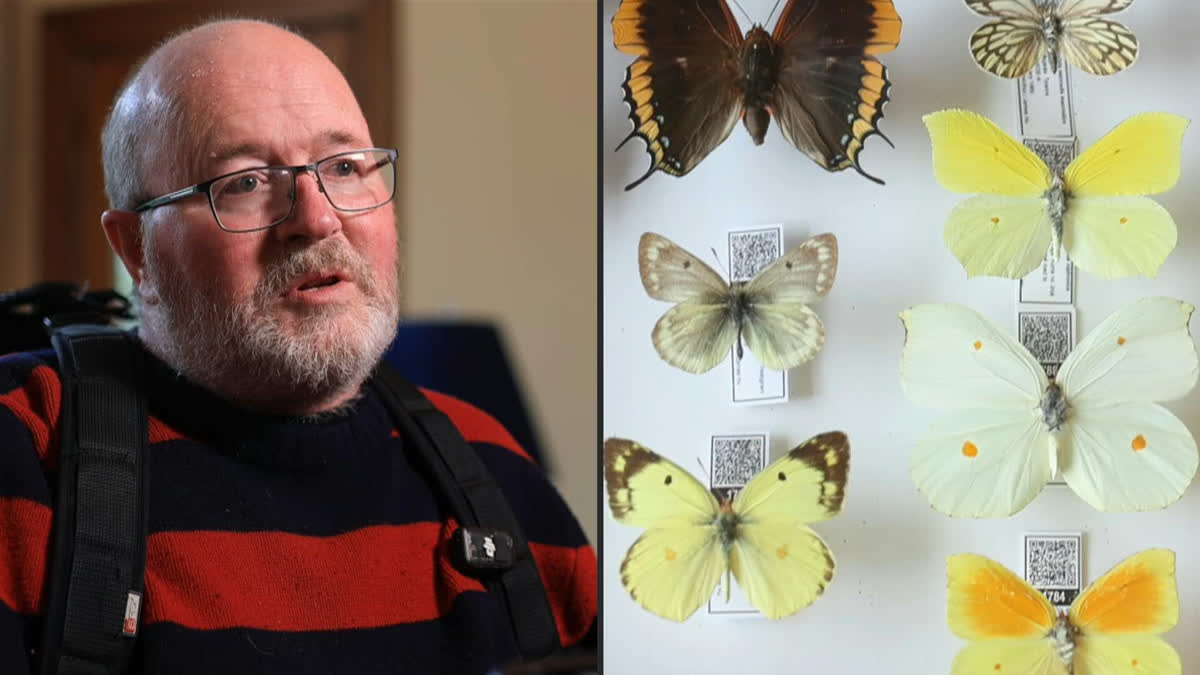Karori, New Zealand:A New Zealand enthusiast spent half a century amassing one of the world's largest private butterfly collections. As death nears, he has handed this life's work of 20,000 specimens to a museum. Wheelchair-bound and ravaged by multiple sclerosis, 68-year-old John McArthur vividly recalls the first time he saw a butterfly. He was 10 years old and it was a shock of yellow and black, a swallowtail butterfly flitting among the zinnia flowers in his mother's New York garden."I was mesmerised", McArthur says, recounting the first step of a journey that would take him from the Amazon to the Himalayas, the Andes back to his native New Zealand.
Over nearly 60 years, he collected more than 20,000 specimens, a kaleidoscope of colour and life that he painstakingly pinned into hundreds of boxes that lined the walls of his home. McArthur also remembers the last time he caught a butterfly. It was during a 2008 visit to the achingly beautiful Cobb Valley, in New Zealand's South Island. He happened across a boulder copper butterfly. Quickly slinging aside his crutches, he dropped to his knees to scoop up the diminutive wonder.
Soon enough, that kind of effort would be too much. By that time, he had already felt a tingling sensation in his spine. Doctors diagnosed multiple sclerosis, an incurable disease of the central nervous system. "A specialist told me I would probably need a walking stick within 15 years," McArthur remembers. "But six months after the diagnosis, I was in a wheelchair." The disease has now robbed McArthur of the use of his hands and legs, and his speech is laboured. But his mind remains sharp, recalling specimen names and locations where he found his favourite butterflies.
High price
Faced with his mortality, McArthur resolved to find the thousands of beloved butterfly specimens a new home, somewhere they could find a new life after his death. He ruled out donating to a New Zealand museum: "They just don't have the facilities" he said. "You need climate control, very rigorous pest control. Accepting a large collection has quite a price tag." Instead, he chose the Natural History Museum in London, paying to ship his collection from Wellington to London this April.
"I had mixed emotions -- sad to see it go, but thrilled that it was going where it would be useful." His Lepidoptera were merged into the museum's vast collection, which contains about 13.5 million butterflies, housed in 80,000 drawers. Some of McArthur's favourites are now kept alongside specimens studied by Charles Darwin, the 19th-century naturalist who popularised the theory of evolution. "For a collector, that's quite a big deal. It's humbling," McArthur added.
